Introduction
In the complex world of insurance, independent agencies play a vital role in providing personalized service and tailored coverage options to clients. Unlike captive agencies tied to specific insurance carriers, independent agencies have the freedom to shop around for the best policies from a variety of providers. However, in order to thrive in a competitive market, independent agencies must effectively market their services to attract and retain clients. In this article, we’ll explore strategic approaches to marketing an independent insurance agency, from understanding your target audience to leveraging digital channels and beyond.
Understanding Your Target Audience
Identifying Demographics
Before diving into marketing efforts, it’s crucial to have a clear understanding of your target audience. Who are the individuals and businesses that can benefit most from your services? Consider factors such as age, income level, occupation, and location. For example, if your agency specializes in commercial insurance, your target demographic might consist of small business owners in specific industries.
Analyzing Psychographics
Beyond basic demographics, psychographic analysis delves into the attitudes, values, and lifestyles of your target audience. What are their pain points and priorities when it comes to insurance coverage? Are they risk-averse or more willing to take chances? Understanding these psychological factors can help tailor your marketing messages to resonate with potential clients on a deeper level.
Conducting Market Research
Market research involves gathering data and insights about your target audience and competitors. Conduct surveys, interviews, or focus groups to gain valuable feedback from existing clients and prospects. Additionally, analyze industry trends and competitor strategies to identify gaps and opportunities in the market. Armed with this knowledge, you can develop more effective marketing strategies that are rooted in a deep understanding of your audience’s needs and preferences.
Crafting Your Unique Selling Proposition (USP)
Defining Your Agency’s Specialization
In a crowded marketplace, it’s essential to differentiate your agency from competitors. What sets your agency apart from the rest? Perhaps you specialize in niche markets such as classic car insurance or cyber liability coverage. Highlighting your unique areas of expertise can attract clients who are seeking specialized knowledge and customized solutions.
Highlighting Unique Benefits
Beyond specialization, focus on the unique benefits that your agency offers to clients. Whether it’s 24/7 customer support, hassle-free claims processing, or access to exclusive discounts, clearly communicate the value proposition that sets your agency apart. Emphasize how these benefits address the specific needs and concerns of your target audience, positioning your agency as the ideal solution provider.
Emphasizing Customer Service Excellence
In the insurance industry, exceptional customer service can be a powerful differentiator. Make it a priority to deliver outstanding service at every touchpoint, from the initial inquiry to policy renewal and beyond. Train your staff to be knowledgeable, responsive, and empathetic in their interactions with clients. Positive experiences can lead to repeat business and valuable word-of-mouth referrals.
Building a Strong Online Presence
Creating a Professional Website
In today’s digital age, a professional website is essential for any business, including independent insurance agencies. Your website serves as the virtual storefront for your agency, showcasing your services, team members, and customer testimonials. Ensure that your website is well-designed, easy to navigate, and optimized for mobile devices to provide a seamless user experience.
Implementing Search Engine Optimization (SEO) Strategies
To increase visibility and attract organic traffic to your website, invest in search engine optimization (SEO) strategies. Conduct keyword research to identify relevant search terms that your target audience is using. Optimize your website content, meta tags, and URLs to rank higher in search engine results pages (SERPs). Additionally, create high-quality content that addresses common questions and concerns related to insurance, positioning your agency as a trusted authority in the field.
Leveraging Social Media Platforms
Social media platforms offer valuable opportunities to connect with potential clients and showcase your agency’s personality and expertise. Choose the platforms that are most relevant to your target audience, whether it’s LinkedIn for B2B networking or Instagram for visual storytelling. Share informative articles, client success stories, and behind-the-scenes glimpses of your agency to engage followers and foster meaningful relationships.
Utilizing Content Marketing
Producing Informative Blog Posts
Blogging is an effective way to demonstrate your agency’s expertise and provide valuable insights to your target audience. Create blog posts that address common insurance-related questions, industry trends, and risk management tips. By offering helpful information without a sales pitch, you can position your agency as a trusted resource for clients and prospects alike.
Creating Engaging Videos
Video content has become increasingly popular on social media and can help humanize your agency’s brand. Create short videos that introduce your team members, explain complex insurance concepts in simple terms, or highlight client success stories. By leveraging visual storytelling, you can capture the attention of your audience and convey key messages in a memorable way.
Offering Free Resources (E-books, Infographics, etc.)
In addition to blog posts and videos, consider offering free resources such as e-books, infographics, or checklists. These downloadable assets provide valuable information to your audience while also capturing leads for your agency. Promote these resources on your website, social media channels, and email newsletters to maximize their reach and impact.
Networking and Building Partnerships
Joining Local Business Organizations
Networking within your local community can help raise awareness of your agency and generate referrals from other business owners. Join industry associations, chambers of commerce, and networking groups to connect with fellow professionals and potential clients. Attend meetings, events, and mixers to build relationships and establish your agency as a trusted partner in the community.
Attending Networking Events
In addition to formal business organizations, consider attending networking events such as trade shows, conferences, and seminars. These events provide valuable opportunities to meet new contacts, exchange business cards, and explore potential collaboration opportunities. Be proactive in initiating conversations and following up with promising leads to nurture relationships over time.
Establishing Relationships with Referral Partners
Referrals are a powerful source of new business for insurance agencies. Identify complementary businesses and professionals who serve the same target audience, such as real estate agents, financial advisors, and attorneys. Establish mutually beneficial referral partnerships where you can refer clients to each other, expanding your reach and providing added value to clients.
Leveraging Customer Reviews and Testimonials
Encouraging Satisfied Clients to Leave Reviews
Positive reviews and testimonials from satisfied clients can build trust and credibility for your agency. Encourage happy clients to leave reviews on platforms such as Google My Business, Yelp, and Facebook. Make it easy for them by providing links and clear instructions on how to leave a review.
Showcasing Positive Feedback on Your Website
Once you’ve accumulated a collection of positive reviews, showcase them prominently on your website. Create a dedicated testimonials page or feature select reviews on your homepage to highlight the positive experiences of past clients. Seeing real-life testimonials can reassure potential clients and reinforce their decision to choose your agency.
Responding Promptly and Professionally to Reviews
In addition to showcasing positive feedback, it’s important to respond promptly and professionally to all reviews, both positive and negative. Thank clients for their feedback and address any concerns or criticisms with empathy and transparency. By demonstrating your commitment to customer satisfaction, you can turn negative experiences into positive outcomes and strengthen your agency’s reputation.
Implementing Email Marketing Campaigns
Building an Email List
Email marketing remains one of the most effective channels for reaching and engaging your audience. Build an email list of current clients, prospects, and leads by offering valuable incentives such as free resources or exclusive discounts. Segment your email list based on factors such as demographics, interests, and purchase history to deliver targeted and personalized content.
Personalizing Email Content
Personalization is key to making your email marketing campaigns more relevant and engaging. Address recipients by name, tailor content to their specific interests and needs, and use dynamic content blocks to deliver customized recommendations. Leverage automation tools to send timely and personalized emails based on triggers such as birthdays, policy anniversaries, or recent interactions with your website.
Tracking and Analyzing Email Campaign Performance
To maximize the effectiveness of your email marketing efforts, track and analyze key performance indicators (KPIs) such as open rates, click-through rates, and conversion rates. Use A/B testing to experiment with different subject lines, content formats, and calls to action to optimize your campaigns for better results. By continually monitoring and analyzing campaign performance, you can identify areas for improvement and refine your strategies over time.
Offering Incentives and Special Promotions
Providing Discounts for Bundled Policies
One effective way to incentivize clients to purchase multiple policies from your agency is to offer discounts for bundled coverage. Bundle discounts not only provide cost savings for clients but also increase their loyalty and lifetime value to your agency. Highlight the potential savings and added convenience of bundling policies in your marketing materials to encourage clients to explore their options.
Running Limited-Time Offers
Limited-time offers create a sense of urgency and scarcity, motivating clients to take action before the opportunity expires. Whether it’s a discounted rate for new policies or a special promotion during a specific time period, leverage scarcity marketing tactics to encourage clients to act quickly. Use clear and compelling calls to action to prompt clients to request a quote or schedule a consultation before the offer expires.
Hosting Contests or Giveaways
Contests and giveaways are fun and engaging ways to generate excitement and interest in your agency’s services. Host a social media contest where followers can enter to win a prize by liking, commenting, or sharing your posts. Alternatively, offer a free consultation or policy review as a prize to incentivize participation and capture leads for your agency. Be creative and think outside the box to create memorable experiences for your audience.
Investing in Paid Advertising
Google Ads
Google Ads (formerly known as Google AdWords) allow you to target potential clients who are actively searching for insurance-related keywords on Google. Create targeted ad campaigns that appear at the top of search results pages for relevant keywords such as “insurance agency near me” or “business insurance quotes.” Use compelling ad copy and relevant landing pages to capture leads and drive conversions.
Social Media Ads
Social media advertising platforms such as Facebook, Instagram, and LinkedIn offer powerful targeting options to reach specific audiences with your ads. Create highly targeted ad campaigns based on demographics, interests, and behaviors to reach potential clients who are most likely to be interested in your services. Experiment with different ad formats, messaging, and targeting criteria to optimize your campaigns for maximum effectiveness.
Display Advertising
Display advertising involves placing visual ads on third-party websites and apps to increase brand visibility and drive traffic to your website. Use display advertising networks such as Google Display Network or programmatic advertising platforms to reach a broader audience beyond search and social media channels. Design eye-catching banner ads with compelling visuals and calls to action to attract clicks and conversions.
Monitoring and Adjusting Your Marketing Strategies
Tracking Key Performance Indicators (KPIs)
To measure the effectiveness of your marketing efforts, track key performance indicators (KPIs) such as website traffic, leads generated, and policy sales. Use web analytics tools such as Google Analytics to monitor user behavior on your website and identify areas for improvement. Set specific goals and benchmarks for your marketing campaigns, and regularly review performance metrics to gauge progress and make data-driven decisions.
Analyzing Return on Investment (ROI)
In addition to tracking KPIs, it’s important to analyze the return on investment (ROI) of your marketing activities. Calculate the cost per lead and cost per acquisition for each marketing channel to determine which strategies are delivering the best results. Allocate your marketing budget strategically based on the channels and tactics that generate the highest ROI, and adjust your strategies accordingly to maximize profitability.
Making Data-Driven Decisions
In today’s digital age, data-driven decision-making is essential for optimizing marketing performance and achieving business objectives. Use data and analytics to gain insights into your target audience, measure campaign effectiveness, and identify opportunities for improvement. Experiment with different strategies, tactics, and messaging based on actionable data insights to continuously refine your marketing approach and stay ahead of the competition.
Conclusion
Marketing an independent insurance agency requires a strategic and multi-faceted approach that encompasses understanding your target audience, crafting a compelling value proposition, and leveraging digital channels and traditional networking tactics. By investing in marketing efforts that resonate with your audience and deliver measurable results, you can attract new clients, retain existing ones, and grow your agency’s bottom line. Remember that marketing is an ongoing process that requires continuous monitoring, adjustment, and innovation to stay relevant and competitive in today’s dynamic marketplace. Take action on the strategies outlined in this article, and watch your agency thrive and flourish in the years to come.







This is why i\’d rather have a green and red scarf. Next to keeping my scarfs in-house I keep them in separate house. Unfortunately I can wear them only when its winter – summer is bit warm for scarfs 🙂
I hope that you agree with me
I agree with you – I also keep my scarves in one special place. I wear them only when its winter and winters here can be vary vary cold.
I change my set of scarves every year. Sometimes it costs me a lot of money but when scarves are in question I simply just don\’t care.
I will share this article on all my social networks – you can follow me there Patrick.